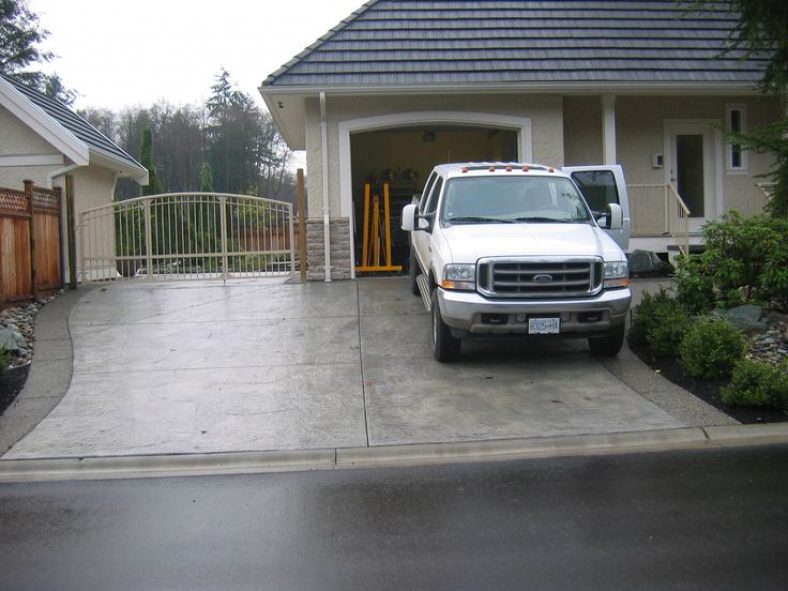The whole point of having a concrete driveway is that it looks good all year-round and requires minimum maintenance. In most cases, concrete driveways meet the expectations and justify the investment. However, there are a few upkeep routines that are necessary even with concrete driveways.
Concrete vs. asphalt
For many homeowners, concrete is the number one choice for driveways and ramps, mainly because of its low maintenance and durability. However, those favouring asphalt have their list of pros, headed by lower price. Concrete pavements usually last up to 30 years, while asphalt typically lasts about 20 years. Installers, however, say that the longevity of either material depends greatly on the upkeep. Concrete repairs are more expensive and the outcome might look patchy, unless a whole layer is removed first. Cracks and holes in asphalt, on the other hand, can be patched and sealed easily.

Regular cleaning
Basically, how often you should clean your driveway largely depends on how much traffic it sees daily. The other consideration is the rain and the pollutants in the air. While everyone can pay a professional cleaning company to power-hose their drive, for most homeowners, scrubbing it with a home pressure washer every few months will be enough.
Periodic resealing
Concrete sealers help protect the driveway surface by sealing the porous surface, which prevents water from entering the cracks. Combined with abrasive particles such as dust and sand, water can speed up the withering. Still, even a top shelf concrete sealer is eventually worn out by traffic and elements, so you need to reseal from time to time to keep the protection on. The optimal period would be three to five years. However, if the driveway sees a lot of use, you may need to reseal more often.
Man-made damage
Shovels with metal blades and metal ice chippers can easily damage the concrete surface of your driveway. Plastic snow shovels are a much better choice. Also, if you are using a snow blower, make sure your raise the blades high enough to prevent them for scraping on the driveway surface. Avoid dragging heavy loads or storing heavy objects on the driveway for extended periods. Poorly done driveway lines can be easy damaged, so be sure to redo them with a quality line marking paint, which is resistant to wear and weather conditions.
Oil spills
Changing the oil in your car on your driveway is not recommended, since spilled oil can leave a stubborn stain that is a pain to remove once it dries. Still, if you see any oil spills or drips, remove them immediately with an absorbent material such as kitty litter, sawdust or cornmeal. After most of the spill is soaked, remove the residue by scrubbing it with hot water and soap. If needed, use commercial concrete cleaner available at hardware stores.
Salt and chemicals
Chemical de-icers and salt are not only harsh on lawns and gardens alongside your driveway, but can also eat through the concrete surface and contribute to its deterioration. In winter months, throwing sand on icy patches is a much better way of providing traction, and the best part is that you can simply sweep or hose it away in the spring.
Small cracks
Natural settling or shifting of the ground can cause small cracks that are barely visible. However, if unattended, water runoff, as well as freezing and thawing cycles, can increase these cracks, making them large enough for dirt to settle and weeds to take root. The end result – in a few years, you might need to resurface the driveway entirely. Luckily, there are many concrete patching products today designed especially for dealing with small cracks.
Although the developments in concrete technology have made the mixture more resilient than ever, wheel traffic and weather conditions take their toll. Applying these six tips will make your concrete driveway one thing less you need to worry about.

